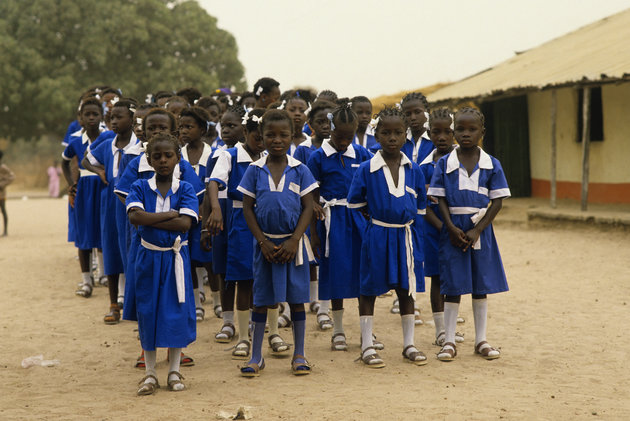
While advocates have celebrated Gambia’s recent ban on female genital mutilation as a necessary first step, they aren’t convinced that girls there are yet safe from getting cut.
President Yahya Jammeh announced last month that the small African nation, where about three quarters of girls have undergone FGM, would outlaw the procedure, the Guardian reported. But advocates say that the legislation could just drive families to continue performing the practice discreetly if the government doesn’t take further action, according to Reuters.
“It is a positive first step, but I think many people feel that it won’t change much,” Hazel Barrett, a British expert on FGM and professor at Coventry University, told Reuters.
FGM involves the partial or total removal of the external female genitalia for non-medical reasons, and is accompanied by a slew of grave health risks. It can lead to sepsis, infertility, the development of cysts, among other complications.
In other countries, where FGM has been banned but is entrenched in the culture, parents often have their daughters undergo the practice before they can speak to prevent getting reported, Reuters added.
Even in the United States, where FGM has been illegal since 1996, the practice is on the rise as families continue to find ways to bypass the restrictions. The U.S. tried making it even more challenging for families in 2012 by making it illegal to transport girls out of the U.S. for the purpose of subjecting them to FGM.
Despite such legislation, the risk of FGM has more than doubled since 2000 in the U.S. to half a million, according to a report released by nonprofit Population Reference Bureau in February.
Advocates hoping to put an end to FGM once and for all in Gambia remain concerned because of the government’s past track record in failing to protect citizens’ rights.
For example, 30 young protesters near Kartong were recently arrested for demonstrating, an incident that advocates say is further proof that the government isn’t committed to advancing human rights issues.
“The arrests should serve as a warning to those celebrating the so-called ban on FGM,” Jeffrey Smith, Africa specialist at the Robert F Kennedy human rights center, told the Guardian. “As this latest incident demonstrates, Gambian authorities frequently violate the law. Gambia is not a nation of laws, but rather a nation subject to one man’s whims and impulses.”
Anti-FGM campaigners say that legal action combined with support among religious communities is key to effectively putting an end to FGM.
UNICEF has called for Islamic leaders to instate a fatwa, which is a religious instruction, against the practice.
In 2011, a conference of Islamic Scholars from West Africa convened in Mauritania and issued a fatwa against FGM, stating that it’s “not justified and it is prohibited by Sharia.”
While two Gambian Islamic scholars supported it, the Supreme Islamic Council in Gambia didn’t publicly disassociate FGM from Islam, according to a report released by 28 Too Many, a group that’s fighting FGM.
But experts say that strong follow-through from the government is just as critical.
“The ban is an essential first step towards ending FGM and we commend President Jammeh on finally announcing it,” Mary Wandia, FGM programme manager for Equality Now, said in a statement provided to The Huffington Post. “A law must now be enacted and properly implemented to ensure that every girl at risk is properly protected. The government needs to show strong commitment and prioritize this issue.”

